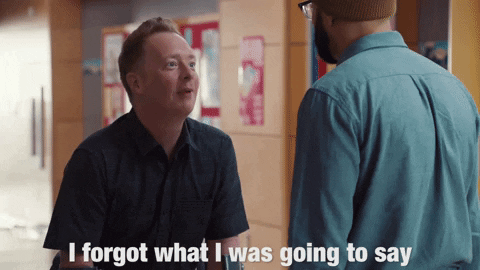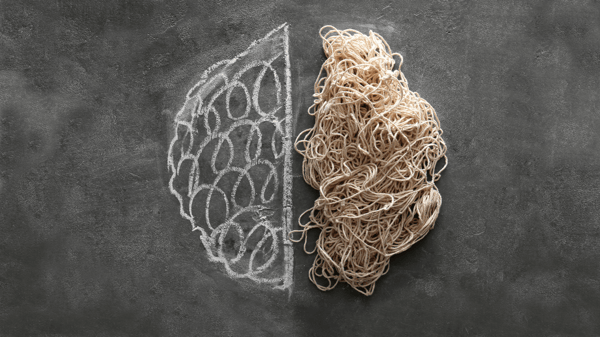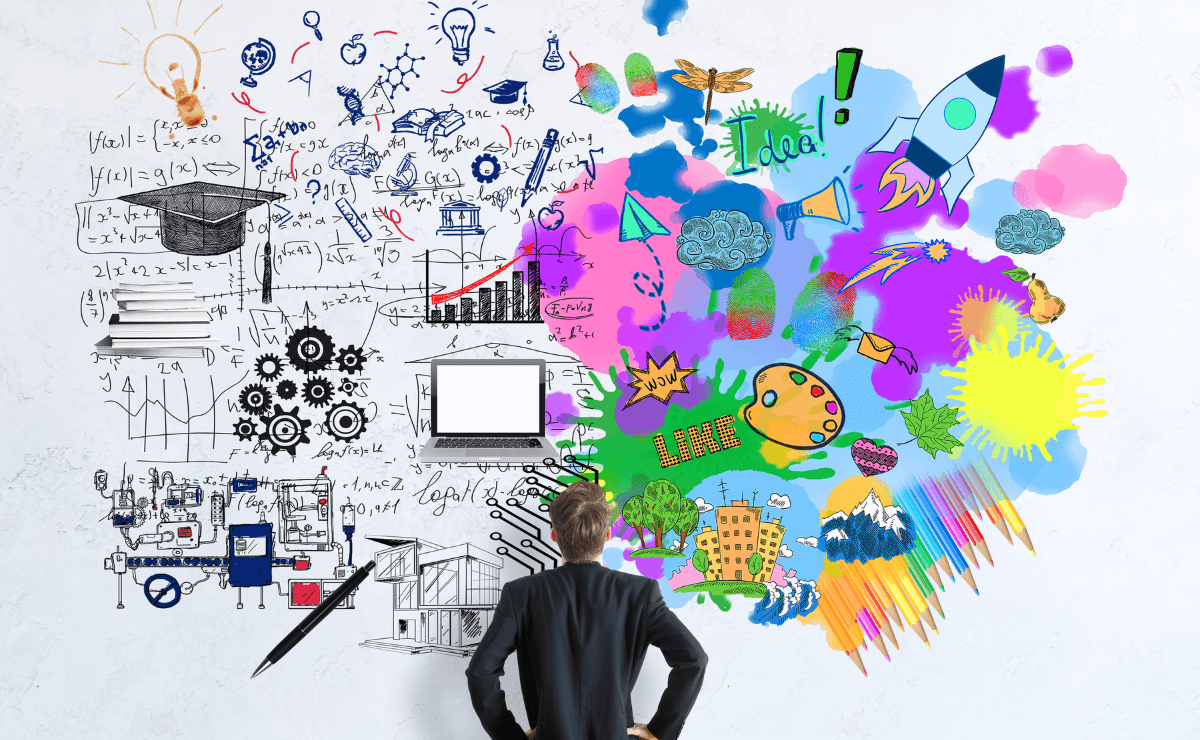Everyone experiences those days when it seems like the universe conspires against you and your attempts to get organized.
You can't find your phone. You forgot about your important meeting yesterday because your calendar is a mess. And the vet bill is overdue because it got lost in the doom pile on your kitchen counter.
It's okay. I get it. Trust me.
Forgetfulness and disorganization are just part of the human experience. However, for those of us with ADHD, disorganization makes our human experience a bit more challenging.
Too long; didn't read
- There are three types of disorganization that ADHDers might be familiar with: physical, mental, and speech disorganization.
- Disorganization happens because ADHD affects the frontal cortex—a brain region involved in decision-making, memory, and personality, among other things.
- ADHDers can improve their organization skills with a few brain hacks, including the accountability buddy system, time-blocking, and exploring the organization modules on the Inflow app.
3 types of disorganization
In general, disorganization can manifest itself in three major ways:
1. Physical disorganization
- Cluttered surfaces and doom piles*
- Difficulty keeping up with your schedule
- Frequently losing or misplacing belongings
- Neglecting personal hygiene, such as showering or brushing your teeth
2. Mental disorganization
- Forgetting deadlines
- Staying focused on one task at a time
- Racing thoughts
- Struggling to prioritize tasks and complete them on time
- Feeling restless due to a lack of routine or structure
3. Speech disorganization
- Losing track of where you were in a conversation
- Struggling to explain a concept or tell a story in a clear way
- Including unnecessary or irrelevant details in conversations
- Changing the subject and going on rants about unrelated topics
* Random piles of neglected and forgotten items
Why people with ADHD might struggle with organization

Rather than just accepting that being unorganized is part of the ADHD brain, let's attempt to understand it better, starting with why people with ADHD are disorganized in the first place.
ADHD is a disorder that affects a specific part of the brain: the frontal cortex.
ADHD and the frontal cortex
The frontal cortex is responsible for the following cognitive functions and behaviors:1
- Decision-making
- Memory
- Personality
- Social appropriateness (including self-regulation and impulse control)
- Reasoning abilities
Studies show that people with ADHD have a frontal cortex structured differently from people without ADHD.2
The frontal cortex is responsible for memory, so this explains why an ADHDer's brain might struggle to remember where they last saw their keys.
In addition, the frontal cortex's social-appropriateness function can even lead to speaking disorganization issues for ADHDers. For example, we commonly struggle to prioritize relevant information when talking, resulting in disorganized and tangential speech patterns. Ultimately, this can make it difficult for others to follow our train of thought.
6 organization tips for ADHD brains

Reduce your clutter.
One of the best ways to keep your ADHD brain focused is to work in a clean space. So, before you hop into your work for the day, take 15 minutes to clean your workspace. (And more of your home, if you have time!)
Rather than engaging in procrastivity and waiting for your clutter to pile up to the point of overwhelm, build 15 minutes into your morning routine for a quick cleaning session and start your work day with a clean (and focused) slate.
Look into the body-doubling or accountability buddy system.
An excellent way for the ADHD brain to focus is by using the buddy system—find a trusted friend, coworker, partner, or family member to sit and work with. This is also referred to as "body doubling."
You don't have to be working on the same project. Simply being in the presence of someone else who is focused and working on a task can help motivate the ADHD brain to do the same.
Test out digital organization methods.
Since organization in many facets is a struggle for ADHDers, it's no surprise that digital organization is included here.3 However, there are great tools that ADHDers have to be immensely helpful in overcoming digital clutter and disorganization.
At Inflow, one of our favorite productivity tools is Notion. It's an ADHDers dream tool for organizing personal and professional tasks. Refer to our Notion guide for beginners for all the tips and tricks to make this tool your BFF.
Try time-blocking.
ADHDers can feel immobilized by staring at a to-do list; it feels as if there's no point in even starting because there's no way everything will get done. And with that mindset, life starts to get really disorganized.
To help avoid that, consider time blocking. This approach helps reduce overwhelm and also helps with staying focused on tasks.
Rather than feeling like you have to spend the next 5 hours working on that work project, break it up into small 30-minute, 45-minute, or 1-hour long blocks of time. Baby steps are the way to go to help the ADHD brain feel motivated and productive.
Use incentives and rewards.
Sometimes, the way to cure your ADHD brain of disorganization is to trick it. And what better way to trick it into getting organized than by giving it some incentive?
The reward system is a fun way to push yourself through some work and enjoy the benefits of a well-done job. Just be sure you only allow yourself the reward after fully completing the task. Otherwise, your brain won't be tricked into reward systems again!
Stay organized with the Inflow app.
Take your organization one step further (and closer to success) by turning to Inflow. This ADHD app is filled with programs to help you manage your ADHD symptoms (including disorganization) so that you can learn to work with your ADHD.
Get matched with an ADHD coach who gives you the accountability you need to stay focused. Also, enjoy the in-app community that connects you with other ADHDers with the same struggles so you don't feel alone.
Final thoughts
Everyone struggles with organization, but it can be particularly challenging for those of us with neurodiverse brains. However, understanding why ADHD can make it hard to stay organized and using effective strategies can make a big difference.
Whether it's reducing physical clutter, using a buddy system, trying digital organization tools, or using incentives and rewards—there are plenty of methods to help manage ADHD-related disorganization. So if you're struggling with disorganization, don't give up hope! With a bit of understanding and helpful strategies, you can learn to work with your ADHD brain and achieve your goals.
Sources:
1 StatPearls Publishing | Neuroanatomy, Frontal Cortex
2 The American Journal of Psychiatry | Brain Imaging of the Cortex in
3 ASSETS; Desrochers et al. | Evaluation of Why Individuals with ADHD Struggle to Find Effective Digital Time Management Tools






.jpg)

